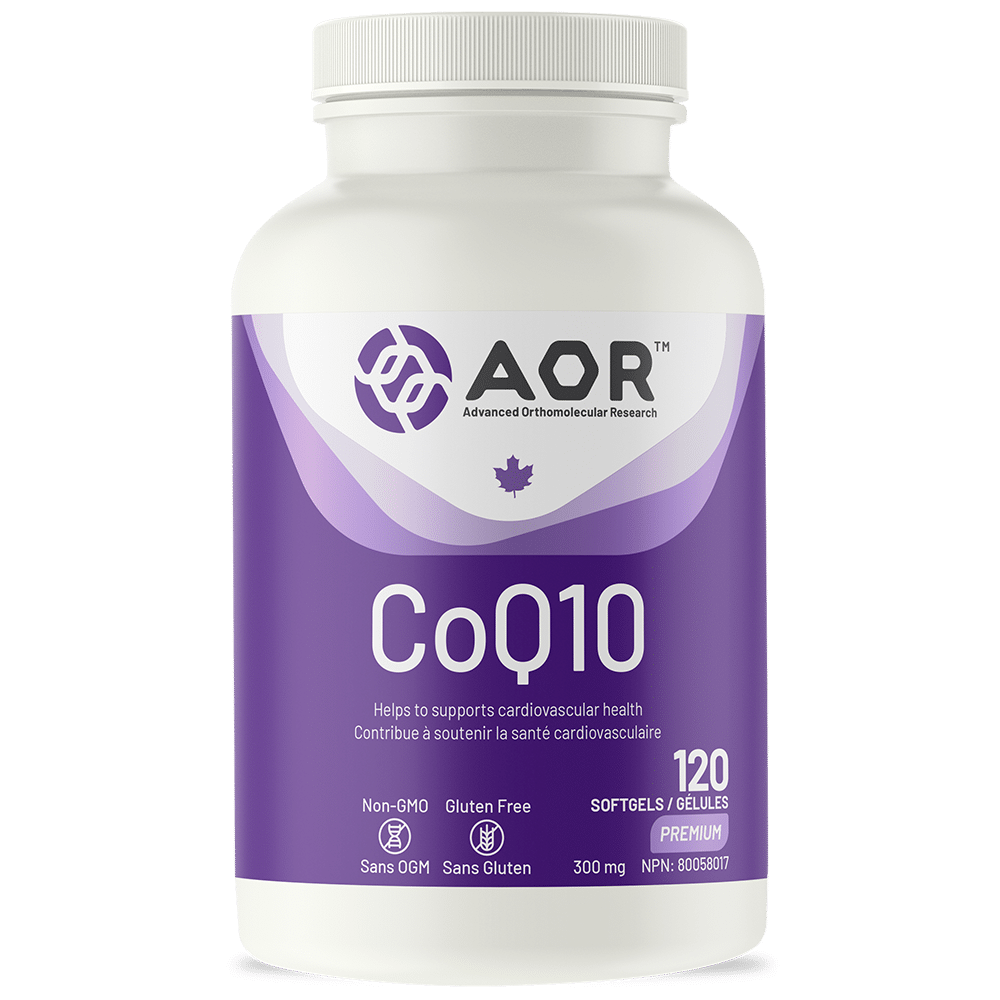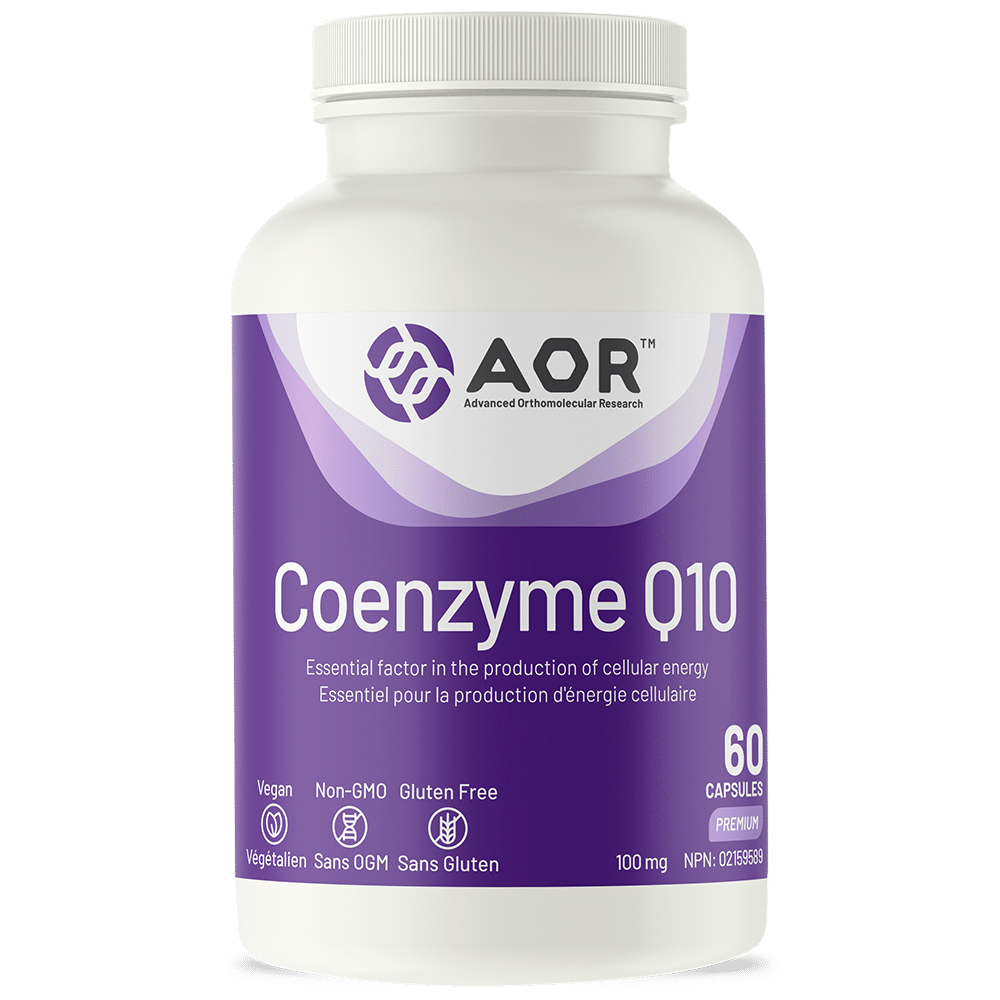CoQ10
High potency heart health support
- Convenient one a day softgel
- Provides antioxidant activity and keeps other antioxidants in their reduced active states
- Targeted support for heart cellular energy
- Helps to reduce the frequency of migraine headaches and associated nausea and vomiting when taken as a preventative

Gluten Free

Non-GMO
Save 7% on $25+, 12% on $100+, or 17% on $175+ with Buy more, Save more*.
*Excludes subscription orders, Lactoferrin products and MyBlueprint™
FREE SHIPPING OVER $75
$77.99
Availability: In stock
Product Information
CoQ10 is a shortened name of Coenzyme Q10, a fat-soluble, vitamin-like nutrient naturally produced by the body. It plays a vital role in cellular energy production, particularly in the mitochondria, where it helps generate ATP–the energy currency of our cells. CoQ10 also acts as an effective antioxidant, protecting cells from damage caused by free radicals. It’s especially concentrated in high-energy organs like the heart where it supports optimal function and vitality.
As we age, our natural production of CoQ10 declines, leading to reduced cellular energy and increased vulnerability to oxidative stress. This decline can affect overall wellness and energy levels. Additionally, commonly prescribed medications, used to lower cholesterol, have been shown to deplete CoQ10 in the body, which may contribute to side effects such as muscle aches and fatigue.
Supplementing with CoQ10 may help support antioxidant defenses and promote a healthy cardiovascular system and to reduce the frequency of migraine headaches and associated nausea and vomiting when taken preventatively.
AOR advantage
AOR’s CoQ10 combines an effective, once a day, 300 mg dose in a lipid (fat) containing softgel to ensure proper absorption and transport CoQ10 into the bloodstream and tissues.
NPN
80058017
How to take
Dose: Directions: Adults (18 years and over) – Take 1 softgel one time daily or as directed by a qualified health care practitioner. Do not exceed daily dose unless instructed by a healthcare practitioner.
Allergens: Tree nuts, sulphites and animal by-product.
Cautions:
Consult a health care practitioner before use if:
- you are pregnant or breastfeeding
- you are taking blood pressure medication
- you are taking blood thinners
Nausea is known to occur, in which, case, discontinue use.
Serving Size: 1 softgel
Coenzyme Q10 (ubiquinone-10)
300 mg
Non-medicinal Ingredients* Gelatin (lime bone), glycerin, medium chain triglycerides (coconut oil), purified water.
*NMIs are subject to change. Always read and follow the label for accurate ingredient and allergen information.
The information and product descriptions appearing on this website are for information purposes only. All statements have not been evaluated by Health Canada. Statements are not intended to provide or replace medical advice to individuals. Information related to products is not intended to diagnose, treat, or cure any disease outside approved claims. Consult with a qualified health care provider if you have any health concerns, and before initiating any new diet, exercise, supplement or other lifestyle changes.
Complementary Products
- Quick View
- Select options This product has multiple variants. The options may be chosen on the product page
- Quick View
- Select options This product has multiple variants. The options may be chosen on the product page






